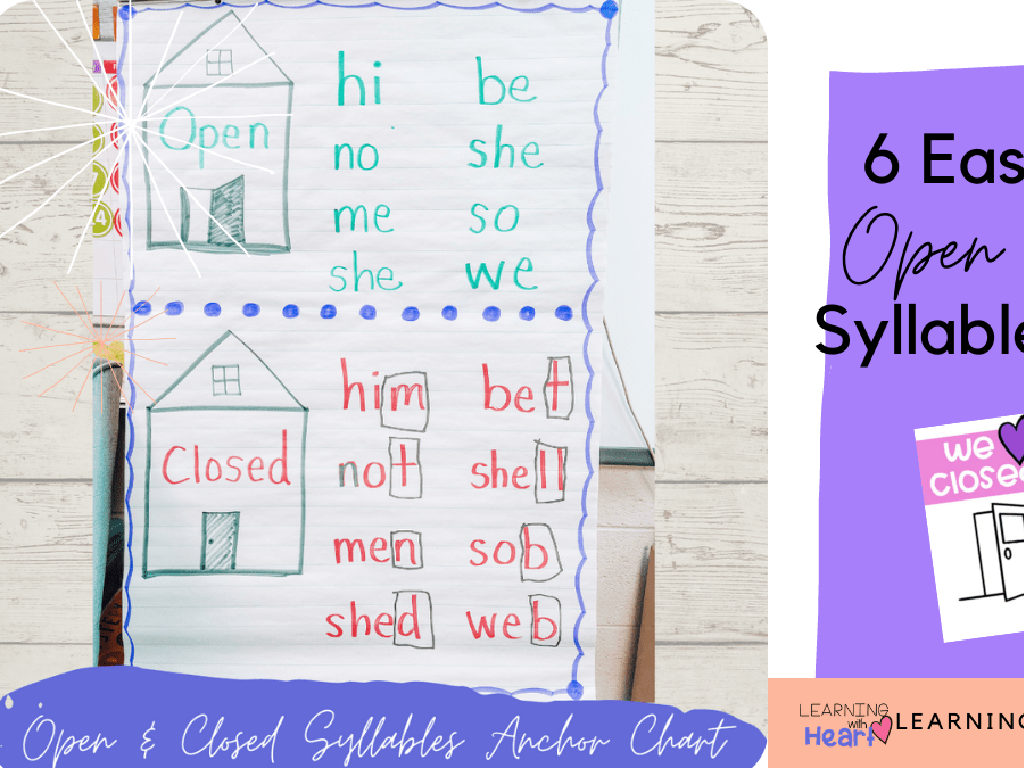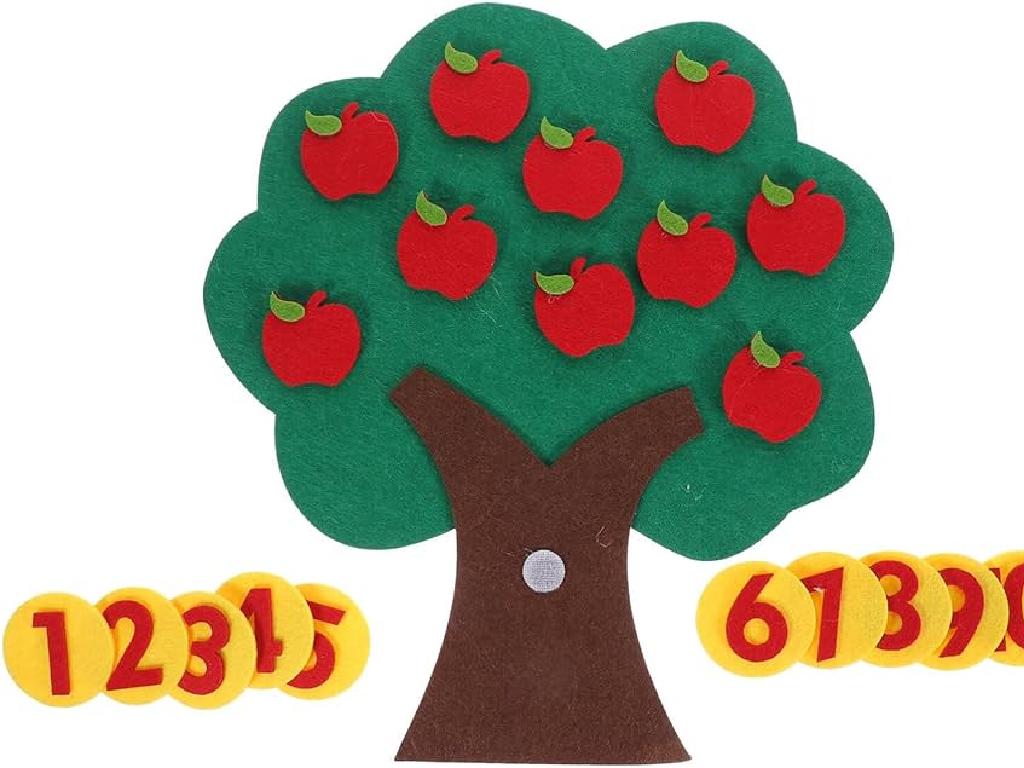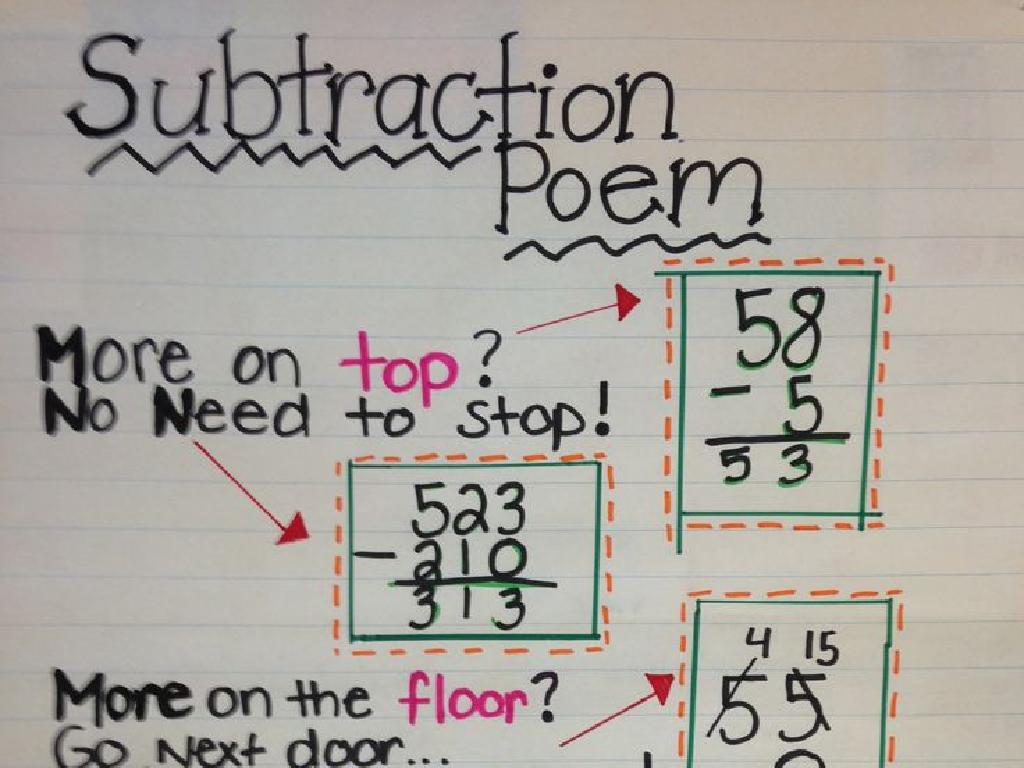Determine The Meaning Of Words Using Synonyms In Context
Subject: Language arts
Grade: Eighth grade
Topic: Context Clues
Please LOG IN to download the presentation. Access is available to registered users only.
View More Content
Understanding Words Through Synonyms
– Grasping context clues
– Today’s goal: synonyms in context
– Learn to deduce word meanings using nearby synonyms
– Role of context clues
– Context clues are hints to word definitions within text
– Synonyms clarify meanings
– Similar words in a sentence can unveil unknown word meanings
|
This slide introduces the concept of using context clues, specifically synonyms, to determine the meaning of unfamiliar words. Context clues are essential for students to develop independent reading and comprehension skills. By focusing on synonyms that appear near unfamiliar words, students can infer the meaning without needing a dictionary. This skill is particularly useful for expanding vocabulary and improving understanding of nuanced text. Encourage students to practice by identifying synonyms in sentences and using them to define new words. Provide examples and exercises where students can apply this strategy in class.
Understanding Synonyms in Context
– Define synonyms
– Words with similar meanings, e.g., big and large
– Synonyms examples
– happy – joyful, sad – gloomy, fast – quick
– Role of synonyms in vocabulary
– Knowing synonyms increases word choice options
– Synonyms in reading comprehension
– Use synonyms to decipher word meanings in texts
|
This slide introduces the concept of synonyms to students, which are words with similar or nearly identical meanings. Provide examples of synonyms to illustrate the concept clearly. Explain how understanding synonyms can help students expand their vocabulary, allowing for more precise and varied expression in both writing and speaking. Emphasize the importance of synonyms in reading comprehension, as they can use context clues to determine the meaning of unfamiliar words. Encourage students to practice by finding synonyms for words they commonly use and by using a thesaurus.
Using Synonyms as Context Clues
– Authors define words using synonyms
– Similar words in text can clarify meanings
– Synonyms may appear close to the new word
– Look in the same or next sentence for clues
– Synonyms hint at the unknown word’s meaning
– Like a secret code to decipher word meanings
– Practice identifying synonyms in context
|
This slide aims to teach students how to use synonyms as context clues to determine the meaning of unfamiliar words. Emphasize that authors often include synonyms within the same sentence or in nearby sentences to help the reader understand new vocabulary. Encourage students to look for words with similar meanings when they come across a word they don’t know. Provide examples and have students practice this skill by identifying synonyms in sample sentences or passages. This will enhance their reading comprehension and vocabulary skills.
Identifying Synonyms in Context
– Carefully read the sentence
– Find familiar similar words
– Synonyms are words with similar meanings
– Infer meaning of new words
– Use known synonyms as clues to the meaning
– Practice with examples
– Example: ‘The arduous journey took its toll.’ Arduous is similar to difficult.
|
This slide aims to teach students how to use context clues, specifically synonyms, to determine the meaning of unfamiliar words. Encourage students to read sentences or passages carefully, looking for words they already know that are similar to the unknown word. These known words can provide hints about the meaning of the new word. Provide practice sentences where students can apply this strategy, such as identifying ‘arduous’ as a synonym for ‘difficult’ in the given example. Discuss how synonyms can vary in connotation and intensity, and why choosing the right synonym matters in different contexts.
Context Clues: Synonyms
– Understanding ‘arid’ through context
– Practice with contextual synonyms
– Find synonyms in sentences to guess meanings
– ‘Arid’ means extremely dry
– Similar to ‘dry’, ‘barren’, ‘parched’
– Discuss other examples in class
– Share your examples and explain your reasoning
|
This slide is aimed at helping students practice the skill of using context clues to determine the meaning of unfamiliar words, with a focus on synonyms. Start by analyzing the example sentence provided, guiding students to understand that ‘arid’ is synonymous with ‘dry’, as indicated by the context. Encourage students to find and share other sentences, either from their reading or created on their own, where they have identified synonyms and inferred meanings. This will help them to apply the concept of context clues to their reading comprehension and vocabulary skills. Make sure to provide feedback and additional examples to solidify their understanding.
Group Activity: Synonym Search
– Work in groups on provided paragraphs
– Find synonyms for highlighted words
– Determine meanings using synonyms
– Use the synonyms to infer the meaning of the highlighted words
– Share findings with the class
|
This group activity is designed to enhance students’ understanding of vocabulary through the use of context clues, specifically synonyms. Divide the class into small groups and provide each with a paragraph containing highlighted words. Students will collaborate to find synonyms within the text that can help them infer the meaning of the highlighted words. Afterward, each group will share their answers, promoting discussion and reinforcing the learning objective. As a teacher, prepare to guide the students through the activity, offer hints if necessary, and provide feedback during the sharing session. Possible variations of the activity could include using different paragraphs for each group, timed challenges, or creating a competition to see which group can find the most synonyms.
Class Discussion: Synonyms in Context
– Review group activity answers
– Synonyms’ role in understanding
– How did similar words clarify meanings?
– Share strategies for finding synonyms
– Did you use thesauruses, context, or prior knowledge?
– Discuss the value of context clues
– Why are context clues crucial for comprehension?
|
This slide is meant to facilitate a class discussion reflecting on a group activity where students used synonyms to determine word meanings. Start by reviewing the answers from the group activity to ensure everyone understands the correct use of synonyms in context. Encourage students to share how synonyms helped them grasp the meaning of unfamiliar words and to discuss any strategies they employed to find those synonyms, such as using a thesaurus, analyzing the surrounding text, or drawing on what they already know. Emphasize the importance of context clues in reading comprehension and vocabulary development. This discussion will help students articulate their thought processes and learn from each other’s approaches, enhancing their ability to infer meaning from context in the future.
Homework: Synonyms in Context
– Find an article or short story
– Spot 10 unfamiliar words
– Use context synonyms for meaning
– Look for nearby words with similar meanings to guess unknown words
– Record synonyms and meanings
– Write the similar words and what you think the new words mean
|
This assignment is designed to enhance students’ vocabulary acquisition skills by using context clues, specifically synonyms, to determine the meanings of unfamiliar words. Students should select a piece of writing that interests them, which will make the task more engaging. Encourage them to look for words they don’t know and use the surrounding text to find hints about the words’ meanings. They should focus on finding synonyms words with similar meanings and use them to infer the definitions. In the next class, students will share their findings, which will help reinforce their understanding and provide an opportunity for peer learning. This exercise will also prepare them for more advanced reading comprehension tasks.
Conclusion: Synonyms in Context
– Importance of synonyms
– Synonyms help grasp the essence of words
– Using synonyms as clues
– Find synonyms in sentences to guess meanings
– Apply strategy in daily reading
– Practice this method with any text you read
– Enhance vocabulary comprehension
|
This slide wraps up our lesson on using synonyms as context clues to determine the meaning of unfamiliar words. Emphasize the value of recognizing synonyms to enhance understanding and how this skill aids in grasping the nuances of language. Recap the steps to identify synonyms within a text and how they serve as hints to decipher meanings. Encourage students to apply this strategy in their everyday reading to naturally expand their vocabulary and improve comprehension. As a part of the lesson closure, you can ask students to reflect on how this strategy has helped them in the past or how they plan to use it in the future.






